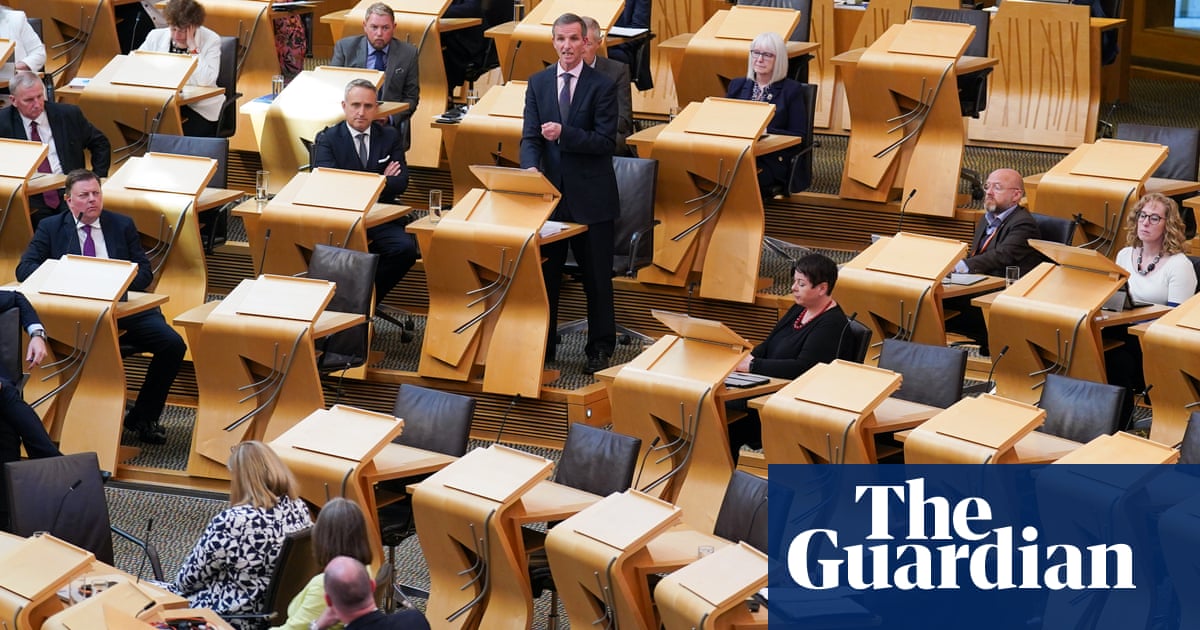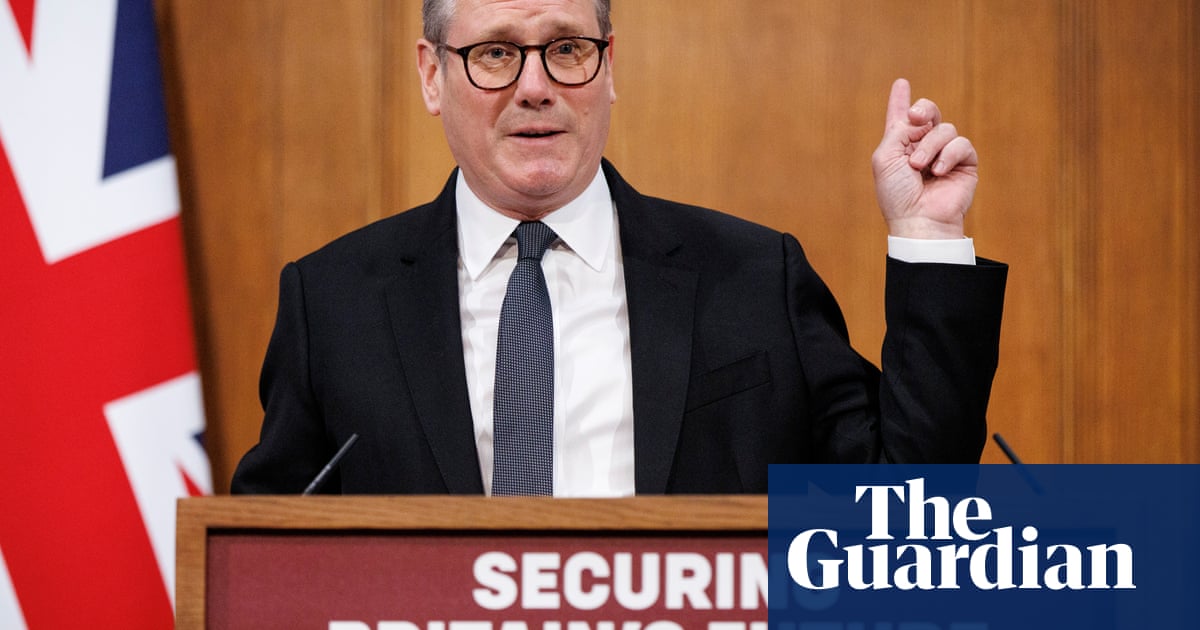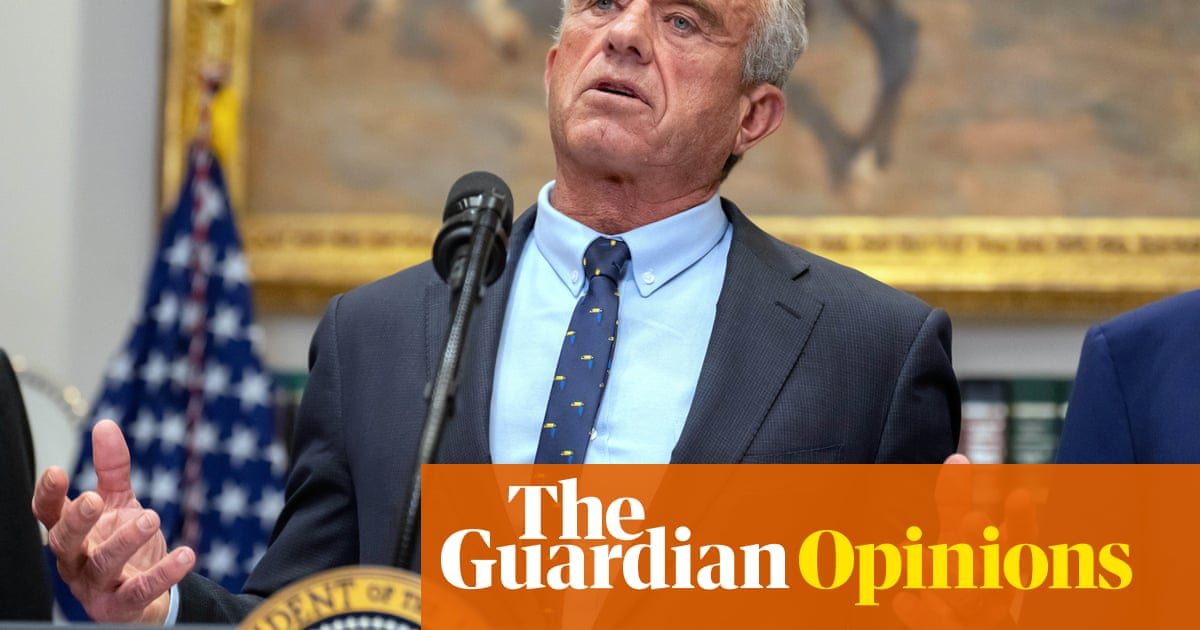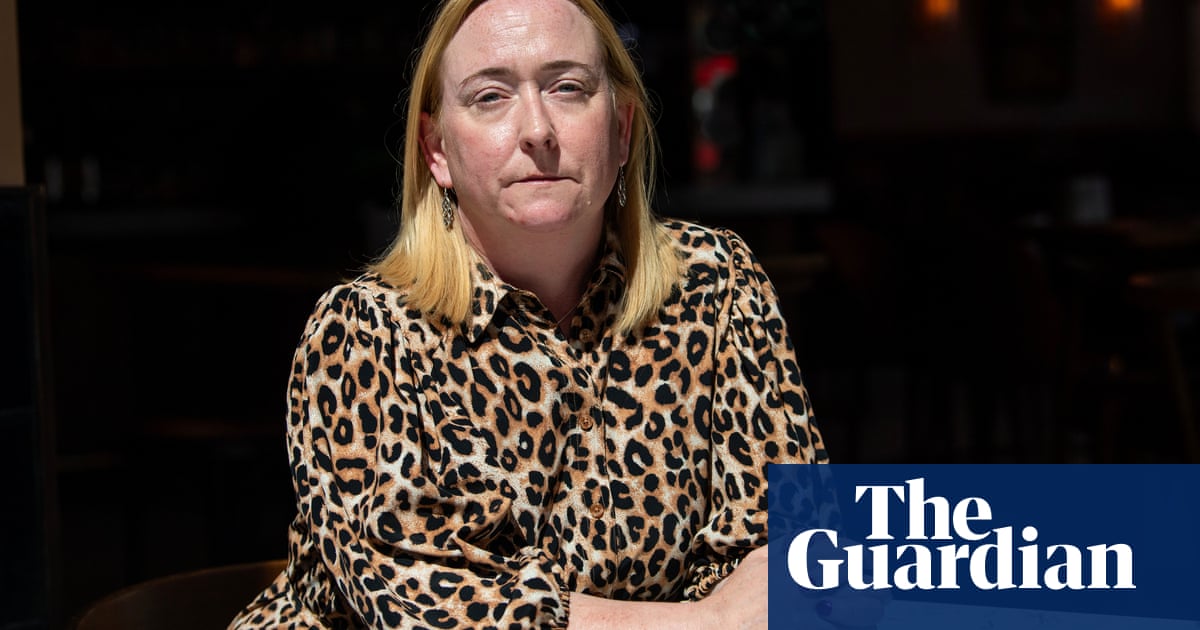No 10 says Starmer 'completely rejects' suggestion he echoed Enoch Powell with 'island of strangers' comment
Downing Street has said that Keir Starmer “completely rejects” suggestions he echoed Enoch Powell in his speech on immigration yesterday. (See 9.43am.)
At the Downing Street lobby briefing, asked about the criticism he has attracted for using a phrase that echoed one used by Powell in his Rivers of Blood speech, the PM’s spokesperson said: “We completely reject that comparison.”
Asked if Starmer was not worried about his language, the spokesman said:
Absolutely, the prime minister rejects those comparisons and absolutely stands behind the argument he was making that migrants make a massive contribution to our country, but migration needs to be controlled.
Asked if Starmer stood by what he said yesterday about Britain being at risk of turning into an “island of strangers”, the spokesperson replied: “Yes.”
Asked if that meant that Starmer agreed with what Powell said in 1968 when he said immigration made native Britons feel as if they had “found themselves made strangers in their own country”, the spokesperson said he did not accept the comparison.
Asked to explain the difference between the two sentiments, the spokesperson said:
The prime minister has made the argument that migrants make a massive contribution to the UK, and have done for generations.
Asked if that meant Starmer would be unwilling to use the words Powell used, the spokesperson replied:
The prime minister was using his own words to rightly recognise both the contribution that migrants have made over generations and to make the point that uncontrolled migration has been has been too high.
But look, this government is not going to shy away from this issue. The public are rightly concerned about the impact that uncontrolled migration has had on the UK.
In another version of the question, the spokesperson was asked if Starmer would condemn Powell for what he said. The spokesperson replied: ‘The prime minister would reject in its entirety previous speeches made [by Powell].”
Asked if anyone in Downing Street was aware of the similarity between Starmer’s phrase and Powell’s, the spokesperson avoided the question and just said he rejected “the premise of any comparison”.
When it was put to him that the two phrases were very, very similar, the spokesperson replied: “I can reject the comparison.”
Key events Show key events only Please turn on JavaScript to use this feature
Sadiq Khan says he would not have used Starmer's 'squalid chapter' language about soaring immigration
Sadiq Khan, the Labour mayor of London, has distanced himself from the language used by Keir Starmer yesterday to describe the impact of mass immigration in the UK.
In an interview with James O’Brien on LBC, Khan was asked how he felt when he heard Starmer say in his speech in No 10 that soaring immigration was “a squalid chapter for our politics, our economy, and our country” and that there was risk of Britain becoming “an island of strangers” as a result of it.
Khan replied: “My job is to reassure those of you listeners who may be nervous and touchy.”
When O’Brien put it to Khan, whose parents both came to the UK as immigrants, that Starmer was “talking about you”, Khan said that in fact Starmer was talking about the much more recent wave of very high immigration. But he added:
Those are those aren’t words that I’d use … I read the white paper and I understand the context of the white paper. And those aren’t words that I’d use.
Khan also said that the white paper was about “solutions” to the problems associated with very high levels of immigration.

No 10 does not challenge claim that white paper plans unlikely to reduce net migration below 250,000 per year
Brian Bell, chair of the government’s migration advisory committee, has told the Daily Telegraph that the plans in the immigration white paper are unlikely to reduce net migration below 250,000 a year. It was at 728,000 in the year ending June 2024, and even higher in the year before.
Net migration was already falling, and the measures announced yesterday are expected to reduce immigration by at least 100,000. Bell told the Telegraph this meant net migration would probably fall to “under 300,000 and probably closer to 250,000 in the next few years”.
At the Downing Street lobby briefing, asked if Keir Starmer would be satisfied with net migration at 250,000, the PM’s spokesperson did not challenge the figure.
Instead, he said Starmer has ruled out having a target for net migration because in the past targets have not worked. He also said that Starmer has been clear that, if further steps are needed, the government will take them.
No 10 says Starmer 'completely rejects' suggestion he echoed Enoch Powell with 'island of strangers' comment
Downing Street has said that Keir Starmer “completely rejects” suggestions he echoed Enoch Powell in his speech on immigration yesterday. (See 9.43am.)
At the Downing Street lobby briefing, asked about the criticism he has attracted for using a phrase that echoed one used by Powell in his Rivers of Blood speech, the PM’s spokesperson said: “We completely reject that comparison.”
Asked if Starmer was not worried about his language, the spokesman said:
Absolutely, the prime minister rejects those comparisons and absolutely stands behind the argument he was making that migrants make a massive contribution to our country, but migration needs to be controlled.
Asked if Starmer stood by what he said yesterday about Britain being at risk of turning into an “island of strangers”, the spokesperson replied: “Yes.”
Asked if that meant that Starmer agreed with what Powell said in 1968 when he said immigration made native Britons feel as if they had “found themselves made strangers in their own country”, the spokesperson said he did not accept the comparison.
Asked to explain the difference between the two sentiments, the spokesperson said:
The prime minister has made the argument that migrants make a massive contribution to the UK, and have done for generations.
Asked if that meant Starmer would be unwilling to use the words Powell used, the spokesperson replied:
The prime minister was using his own words to rightly recognise both the contribution that migrants have made over generations and to make the point that uncontrolled migration has been has been too high.
But look, this government is not going to shy away from this issue. The public are rightly concerned about the impact that uncontrolled migration has had on the UK.
In another version of the question, the spokesperson was asked if Starmer would condemn Powell for what he said. The spokesperson replied: ‘The prime minister would reject in its entirety previous speeches made [by Powell].”
Asked if anyone in Downing Street was aware of the similarity between Starmer’s phrase and Powell’s, the spokesperson avoided the question and just said he rejected “the premise of any comparison”.
When it was put to him that the two phrases were very, very similar, the spokesperson replied: “I can reject the comparison.”
Putin 'prevaricating' and 'obfuscating' over peace in Ukraine, David Lammy tells MPs
Vladimir Putin is “prevaricating” and “obfuscating” in peace talks with Ukraine, David Lammy has told MPs.
Speaking during questions in the Commons, the foreign secretary said:
We welcome the desires to get an enduring peace, but there must be a ceasefire in order to engage in those talks it seems to me, and it is Putin that is prevaricating, it is Putin that is obfuscating and we must call that out with our long experience of scrutinising that particular individual.
In July Labour will have been in power for a year. To mark the anniversary, Guardian Live events are hosting a conversation in Conway Hall, London, on Wednesday 9 July where Pippa Crerar, the Guardian’s political editor, Rafael Behr, a Guardian columnist, Frances O’Grady, the Labour peer and former TUC general secretary, and Salma Shah, the former Conservative special adviser to Sajid Javid, will discuss how it has gone.
There is more about the event, and a link allowing you to book tickets, here.
Government to broaden law criminalising those who encourage people to self-harm
Anyone who assists someone to self-harm – such as by giving them a blade or pills – could face up to five years in prison under plans for a new offence, PA Media reports. PA says:
Ministers are seeking to broaden the law to criminalise those who encourage or assist self harm online or in person, as part of the crime and policing bill.
The move would mean anyone who intend to cause serious self-harm could be prosecuted, even if that did not lead to any injuries.
Under the Online Safety Act 2023, it is already illegal to encourage or assist suicide or self-harm through content online.
But the change to the law seeks to replace the existing offence to cover all ways self-harm could be aided.
Commenting on the change, Alex Davies-Jones, the victims minister, said:
The prevalence of serious self-harm, especially in young people, is hugely concerning.
It is an awful truth that some people encourage or assist such behaviour, and one I wanted to draw attention to during Mental Health Awareness Week.
Whether encouragement is by communication, or more directly by assistance, the outcome is the same.
We are determined that anybody intending to see others harm themselves is stopped and dealt with in the strongest way.
UK jointly calling for urgent meeting of UN security council to discuss situation in Gaza, minister tells MPs
David Lammy, the foreign secretary, has just started taking questions in the Commons. In response to the first question, Hamish Falconer, minister for the Middle East, said the UK has joined calls for an urgent meeting of the UN security council this afternoon to discuss the situation in Gaza.
After Foreign Office questions, Mel Stride, the shadow chancellor, is asking an urgent question about the Mansion House accord – a deal with pension companies intended to get them to invest more in UK firms.
The government’s immigration white paper generated negative headlines across all wings of the press this morning.
Here are two of the headlines in rightwing papers.


And here are three headlines from papers in the centre or on the left.



But, without pleasing the left or the right, maybe Keir Starmer was aligned with the views of people who do not identify with either side? That is the argument made by Luke Tryl, who as director of More in Common UK spends a lot of time in focus groups researching public opinion. He posted these on Bluesky yesterday.
IMO, both Starmer’s recognition that migration is part of Britain’s national story, and the warning that without more control “we risk becoming an island of strangers, not a nation that walks forward together” does a pretty good job of capturing where most Brits are on immigration.
There are very few pull up the drawbridgers even in the most migration sceptic focus groups we run (or in the polling). But there are very definitely worries, even in more liberal groups, that the pace/scale of immigration and lack of integration expectations undermines cohesion/identity/community.
Insisting more control is needed and we should have greater expectations on contribution/integration (and we should actually be prepared to invest in it) tackling reliance on cheap labour, while also being clear Britain will always want to attract people, seems to meet public expectations on balance
UK unemployment rises to highest in nearly four years
The unemployment rate in the UK has risen to its highest level in almost four years, according to official figures, as the jobs market continues to slow. Heather Stewart has the story.
Thames Water boss defends early £195,000 bonus in evidence to MPs
Chris Weston, chief executive at Thames Water, has defended his decision to accept a £195,000 bonus just three months into the job last year.
Giving evidence to the Commons environment committee, where he was asked if it was wise to accept such a big bonus so soon after her started, Weston replied:
I think in the first three months I did make a difference.
I started to put in place the new organisational structure, I started to give people confidence and reassurance about how proud they could be of the job they did and what we were setting out to do. And that helped stabilise the company and I think that was important.
Weston also said the company had “lost direction a bit” when he took over.
I was the fifth chief executive in five years … that creates a confusion for people in the company. I think it required clearer direction, which I have given … Sixteen months in I’m quite pleased with the progress we’re making.
It is a big ship to turn around. It is very difficult.

Helena Horton
Helena Horton is a Guardian environment reporter.
US agriculture secretary Brooke Rollins finished a press conference in London where she said she would like to see the UK and the US more aligned on food standards regulation.
She also seemed to soften her stance on getting the UK to accept chlorine-washed chicken and hormone-treated beef from last week when she said US agriculture was being treated “very unfairly” by countries such as the UK and that she wanted the UK to accept “all meat” from the US.
Rollins told reporters the market is beginning to move away from hormone-treated beef, and that chlorine-washed chicken has almost entirely been removed from the US supply chain.
Asked about US beef producers phasing out hormones she said:
Our agriculture producers, our cattle producers etc, obviously are constantly watching what the markets look like, and if the markets are calling for a specific type, or they have more opportunity somewhere, then I think that we potentially do see some movement in the market.
Rollins added that she wanted the US, UK and other countries to have more regulatory alignment and similar standards for agriculture. She said:
One thing … I’ve taken from a lot of the discussions yesterday [when she met Steve Reed, the enviroment secretary] and today is that the more our two countries, and those who are aligned with our values, are regulatory aligned, meaning that we don’t have all these different systems and structures – I think that that is going to go a tremendously long way to supporting the agriculture industry.
Rollins also seemed to have softened her stance on asking the UK to accept chlorine chicken. She said:
Only about 5% of our chicken in America is actually treated that way, with the chlorine. So we have moved, over the last decade, completely away from the ‘chlorine chicken’. So that’s I think that’s a really important to dispel, and I’m very grateful to do that.
She also said that, although pork and poultry weren’t included in last week’s US-UK trade deal, they are at the top of the list for further discussions.
Starmer's use of phrase echoing Enoch Powell was 'accident', not intentional, says source close to No 10
In an interview on Newsnight last night Arlene Foster, the former DUP leader, said she thought that someone in Downing Street would have known that “island of strangers” was a clear echo of what Enoch Powell said in his Rivers of Blood speech. Asked if Keir Starmer would have been aware of the similarities in the language, she replied:
Somebody did Downing Street, I’m convinced of it,
“Island of strangers” is a very particular form of words, it’s almost a term of art. So where did it come from? And who was the person that said this should go into the speech?
But Starmer’s allies are saying it was genuine mistake, and not an intentional echo of what Powell said. “It was an accident, and not designed to cause a row,” according to a source close to No 10 familiar with what happened. The source accepts that someone should have realised that the “island of strangers” phrase had Powellite connotations. But the fact that this was not picked up is attributed to an error, and not an attempt to reference the Rivers of Blood speech.
This is from Steve Richards, the veteran political commentator, on social media the Starmer/Powell language row.
Keir Starmer’s ‘island of strangers’ comment is part of a pattern.. his willingness to read out whatever is written for him by clunky advisers ..in this case trying too hard to make him sound like Farage..As a result inauthenticity is a wider problem for him. There are many arguments to be made for border security. He made some of them well…All lost by a single stupid phrase that some right wing populists would think twice before using…and anyway predictably leads to the Mail and co running their usual hostile front pages.

Photograph: James Manning/PA
Robert Jenrick claims immigration has already turned UK into 'island of strangers'
Robert Jenrick, the shadow justice secretary, was also doing an interview round this morning. Asked about Keir Starmer’s warning in his speech yesterday that Britain was at risk of becoming an “island of strangers” because of the impact of mass immigration, Jenrick claimed Britain was already like this. He told Times Radio:
I think it’s true. In fact, I think in some places we already are. Aggressive levels of mass migration have made us more divided.
If you look at communities in our country, for example central Bradford, 50% of people were born outside of the United Kingdom; in central Luton, 46% of residents arrived in the past decade.
There are places like Dagenham where the white British population has fallen by almost 60% in the last 25 years.
People in many parts of our country are experiencing profound change as a result of the levels of migration that we’ve seen, and we’ve got to bring that back to the historic levels that we enjoyed as a country which enabled us to be a well-integrated and united country, rather than the one that we’re seeing today.
(A pedant might point out that, even though Enoch Powell and Keir Starmer were making a rhetorical point when they talked about “strangers”, technically we are an island of strangers anway. There are almost 70 million of us here, and most of us only personally know hundreds, or at best a few thousands, of our fellow citizens.)
Cooper defends Starmer’s ‘island of strangers’ line but says she does not know if he was aware of Enoch Powell echo
Good morning. Yesterday Keir Starmer unveiled the government’s immigration white paper, a significant policy intervention on a topic that is near the top of the public’s list of concerns. Yet today the debate is dominated not by the actual policies – even though they could cause big problems in some sectors of the economy, as we explain here – but by the language Starmer used to defend them.
To recap, in one section of his speech yesterday Starmer said:
Nations depend on rules – fair rules. Sometimes they’re written down, often they’re not, but either way, they give shape to our values. They guide us towards our rights, of course, but also our responsibilities, the obligations we owe to one another. Now, in a diverse nation like ours, and I celebrate that, these rules become even more important. Without them, we risk becoming an island of strangers, not a nation that walks forward together.
This generated huge controversy not just because of the argument (some people don’t accept the claim that high levels of immigration undermine social cohesion), but because the argument and the language echo what Enoch Powell said in his infamous Rivers of Blood speech in 1968. Powell said:
While, to the immigrant, entry to this country was admission to privileges and opportunities eagerly sought, the impact upon the existing population was very different. For reasons which they could not comprehend, and in pursuance of a decision by default, on which they were never consulted, they found themselves made strangers in their own country.
They found their wives unable to obtain hospital beds in childbirth, their children unable to obtain school places, their homes and neighbourhoods changed beyond recognition, their plans and prospects for the future defeated; at work they found that employers hesitated to apply to the immigrant worker the standards of discipline and competence required of the native-born worker; they began to hear, as time went by, more and more voices which told them that they were now the unwanted.
Starmer was clearly echoing Powell. But what is not clear is whether, for Starmer and/or the person who write the speech, this was intentional, unconscious (people can remember phrases without recalling where they came from), or complete coincidence (politicians more than 50 years apart, making a similar argument, by deploying the same, not-particularly-unusual word).
Powell’s Rivers of Blood speech was denounced as racist as soon as he delivered it (although not so much for his comments about native Britons finding mass migration unsettling, where many people would agree he had a point, but for his suggestion that it would culminate in violence, oppression and social collapse, where he has turned out to be hopelessly wrong) and it is still widely viewed as abhorrent. Yesterday Starmer was condemned by leftwingers for saying something that sounded Powellite.
But ministers have defended him. Asked about this on Newsnight last night, Jacqui Smith, the skills minister, said comparing the Starmer speech to Powell’s was “wrong”. She went on:
Labour and Labour governments have always listened to people in terms of their concerns about their security and the opportunities that they want to have for themselves and their children. And when we see something that we understand that people believe is unfair, then we are going to take action on that. That’s what the British people expect us to do, that’s what Labour governments do.
This morning Yvette Cooper, the home secretary, was giving interviews, and on the Today programme she said she agreed with Smith. She went on:
I don’t think it’s right to make those comparisons [between Starmer’s speech and Powell’s]. It’s completely different. And the prime minister said yesterday, I think almost in the same breath, talked about the diverse country that we are and that being part of our strength.
Cooper said that, when Starmer talked about the rise of Britain being “an island of strangers”, he was referring to “the importance of recognising the impact … [of] this big increase in net migration, and also that we’ve got to have the support for integration, support for English language speaking, a lot of the measures that are set out as part of that white paper”.
Asked if Starmer or his speech writers knew that the “island of strangers” phrase echoed Powell, Cooper said she did not know.
Here is the agenda for the day.
9.30am: Keir Starmer chairs cabinet.
10am: Thames Water bosses give evidence to the Commons environment committee about reforming the water sector.
11.30am: David Lammy, the foreign secretary, takes questions in the Commons.
Noon: Downing Street holds a lobby briefing.
2.30pm: MPs begin a debate on an assisted dying bill.
3.15pm: Jonathan Reynolds, the business secretary, gives evidence to the Commons business committee about industrial strategy.
If you want to contact me, please post a message below the line when comments are open (normally between 10am and 3pm at the moment), or message me on social media. I can’t read all the messages BTL, but if you put “Andrew” in a message aimed at me, I am more likely to see it because I search for posts containing that word.
If you want to flag something up urgently, it is best to use social media. You can reach me on Bluesky at @andrewsparrowgdn.bsky.social. The Guardian has given up posting from its official accounts on X but individual Guardian journalists are there, I still have my account, and if you message me there at @AndrewSparrow, I will see it and respond if necessary.
I find it very helpful when readers point out mistakes, even minor typos. No error is too small to correct. And I find your questions very interesting too. I can’t promise to reply to them all, but I will try to reply to as many as I can, either BTL or sometimes in the blog.

.png) 7 hours ago
6
7 hours ago
6













































